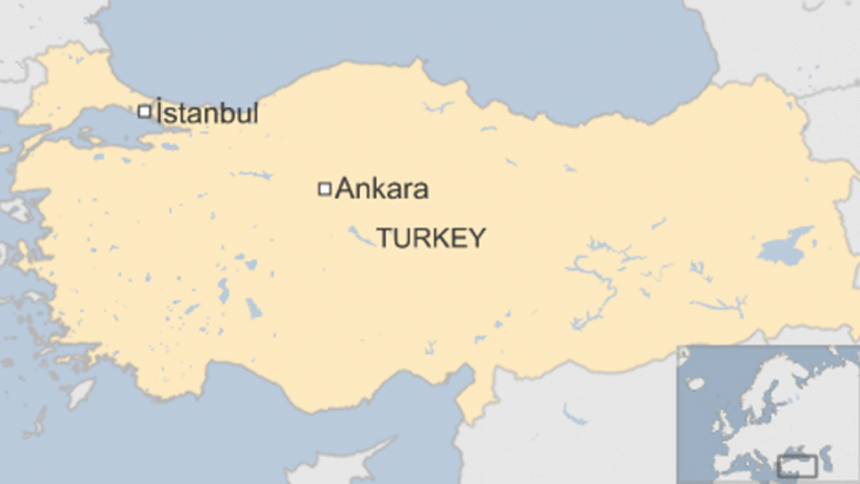86 killed in Ankara explosions

Two explosions at a peace rally in the Turkish capital Ankara have killed at least 86 people and injured 186, according to officials.
TV footage shows scenes of panic and people lying on the ground covered in blood, amid protest banners.
The blasts took place near the city's central train station as people gathered for a march organised by leftist groups.
Turkey's president condemned the attacks as "terrorist acts".
Government officials are investigating reports that a suicide bomber was behind at least one of the explosions.
Who are the Kurds?
The pro-Kurdish HDP party was among those attending the rally, which was demanding an end to the violence between the Kurdish separatist PKK militants and the Turkish government.
The party said in a statement that it believes its members were the main target of the bombings.
The leader of the HDP has blamed the state for the attack, which he called "a huge massacre", and cancelled all election rallies.
Turkey is holding a re-run of June's inconclusive parliamentary elections on 1 November.
Later on Saturday, the PKK called on its fighters to halt its guerrilla activities in Turkey unless attacked first, according to reports on a news site close to the group.
he HDP was among those joining Saturday's rally for "peace and democracy", called for by the confederation of trades unions, which was due to start at 12:00 local time.
The two explosions happened shortly after 10:00 as crowds gathered ahead of the rally. Amateur video footage showed a group of young people holding hands and singing, before the first blast.
The HDP tweeted that police "attacked" people carrying the injured away.
Opposition MP Musa Cam tweeted a photo of a ball bearing he says he found at the scene.
Bulent Tekdemir, who was at the rally, told the BBC that the police used tear gas "as soon as the bomb went off", and "would not let ambulances through".
Local resident Emre said he heard two separate explosions and saw a number of dead bodies. Angry people tried to attack police cars, he told the BBC.
An HDP rally in the city of Diyarbakir was bombed in June, ahead of general elections in which the party entered parliament for the first time.
The BBC's Mark Lowen in Istanbul says it was feared that another similar attack was imminent, as voters prepare to go to the polls once more.
In July, a suicide bombing by suspected Islamic State militants on a gathering of Socialist youth activists in the town of Suruc on the Syrian border killed at least 30 people.
A ceasefire between the Kurdish militant group the PKK and Turkey's government later broke down, and there have been regular attacks from both sides since then.

 For all latest news, follow The Daily Star's Google News channel.
For all latest news, follow The Daily Star's Google News channel. 



Comments